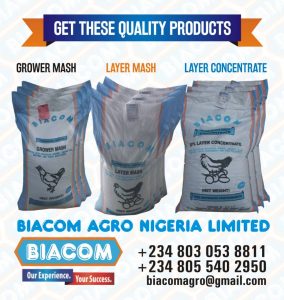What Nigeria Spent on Wheat importation in first Quarter 2021
Data from the National Bureau of Statistics (NBS) trade report shows Nigeria has spent N258.3billion on wheat importation in the first three months of this year, despite the government’s continuous push to drive local production.
The commodity is the third most imported good for the period and accounted for 3.77 percent of total imports, mainly imported from Lithuania and Latvia which are known for producing poor-quality wheat.
READ ALSO: What Dangote Fertiliser Plant will do to Nigerian Economy
 Learn More
Learn MoreAfrica’s most populous country has failed to grow more food for its fast-rising population that favours a wide range of options from rice, beans, tomatoes, and maize, which has continued to force the country to spend millions of dollars yearly importing food.
His is also putting pressure on Nigeria’s foreign exchange reserves and exporting thousands of jobs it would have created when the products are grown locally.

Nigeria being a major market for a species of wheat known as ‘hard red winter’, the country only produces 400,000 metric tons per annum, a figure that is 3.6 million short of total demand, according to data from the Federal Ministry of Agriculture.
There is also a growing demand for soft red winter for biscuits and cookies; hard white wheat for bread and noodles; and durum wheat for pasta, experts say.
READ ALSO: What Rice Farmers are Planning to do Now
Efforts at boosting local wheat production in recent years have been obstructed by the Boko Haram insurgency in the North-Eastern region of the country, as wheat farmers in Borno, the country’s major producing state had abandoned their farmlands and fled to other regions for safety, while some took residency at the Internally Displaced Person’s (IDP’s) camp.
“The insurgency in the North-Eastern region is a major setback to our efforts in increasing wheat production. Before the Boko Haram conflicts, Borno alone contributes 30 percent to the country’s total output but now the state has been contributing nothing,” said Saleh Mohammed, president, Wheat Growers Association of Nigeria.
Other top agricultural imports for the period included edible mixtures or preparation of animal and herrings (clupea haregus, clupea pallasii).
On sectoral basis, agriculture accounted for 9.20 percent of total imports within the period with a N630.2 billion while export accounted for N127.2billion.
Follow us on Twitter for more cutting edge news and articles
Click here to join World Farmers Centre Whatsapp group to get and read more articles like this
To Sponsor or Advertise through a News Post, contact Ola on 07082418202







![NiMet Predicts Late Onset Of Rainfall Across Nigeria In 2024 [Check Details]](https://worldfarmerscentre.com/wp-content/uploads/2024/02/images-2024-02-21T091823.034-218x150.jpeg)
![Nigerian states with fastest-rising food prices now [See list]](https://worldfarmerscentre.com/wp-content/uploads/2023/02/images-1-218x150.jpeg)






